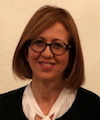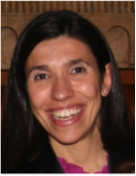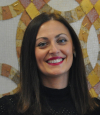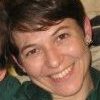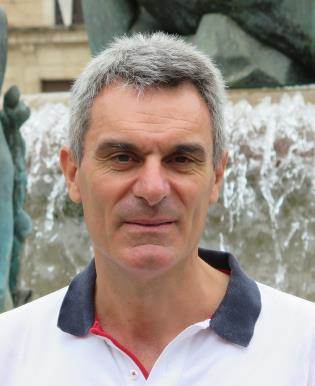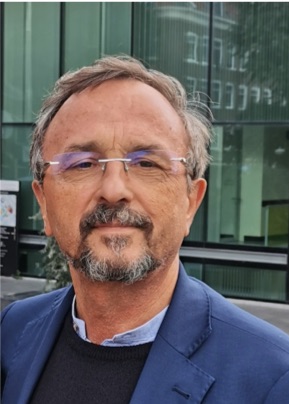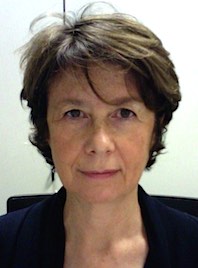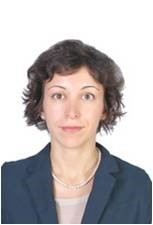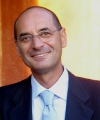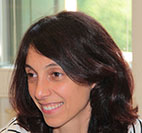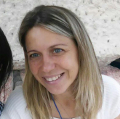Studying at the University of Verona
Here you can find information on the organisational aspects of the Programme, lecture timetables, learning activities and useful contact details for your time at the University, from enrolment to graduation.
Academic calendar
The academic calendar shows the deadlines and scheduled events that are relevant to students, teaching and technical-administrative staff of the University. Public holidays and University closures are also indicated. The academic year normally begins on 1 October each year and ends on 30 September of the following year.
Course calendar
The Academic Calendar sets out the degree programme lecture and exam timetables, as well as the relevant university closure dates..
| Period | From | To |
|---|---|---|
| I semestre | Oct 1, 2024 | Jan 31, 2025 |
| I semestre 3 anno | Oct 28, 2024 | Jan 31, 2025 |
| II semestre | Mar 3, 2025 | Jun 13, 2025 |
Exam calendar
Exam dates and rounds are managed by the relevant Science and Engineering Teaching and Student Services Unit.
To view all the exam sessions available, please use the Exam dashboard on ESSE3.
If you forgot your login details or have problems logging in, please contact the relevant IT HelpDesk, or check the login details recovery web page.
Should you have any doubts or questions, please check the Enrollment FAQs
Academic staff
 michela.cecchin@univr.it
michela.cecchin@univr.it
Study Plan
The Study Plan includes all modules, teaching and learning activities that each student will need to undertake during their time at the University.
Please select your Study Plan based on your enrollment year.
1° Year
| Modules | Credits | TAF | SSD |
|---|
2° Year It will be activated in the A.Y. 2025/2026
| Modules | Credits | TAF | SSD |
|---|
3° Year It will be activated in the A.Y. 2026/2027
| Modules | Credits | TAF | SSD |
|---|
| Modules | Credits | TAF | SSD |
|---|
| Modules | Credits | TAF | SSD |
|---|
| Modules | Credits | TAF | SSD |
|---|
Legend | Type of training activity (TTA)
TAF (Type of Educational Activity) All courses and activities are classified into different types of educational activities, indicated by a letter.
General and Inorganic Chemistry (2024/2025)
Teaching code
4S00136
Credits
6
Language
Italian
Scientific Disciplinary Sector (SSD)
CHIM/03 - GENERAL AND INORGANIC CHEMISTRY
Courses Single
Authorized with reserve
The teaching is organized as follows:
Teoria
Laboratorio [Laboratorio 1° turno]
Credits
1
Period
I semestre
Academic staff
Not yet assigned
Laboratorio [Laboratorio 2° turno]
Credits
1
Period
I semestre
Academic staff
Not yet assigned
Learning objectives
The course provides the fundamental concepts of General Chemistry and some basics of Inorganic Chemistry. Models and general concepts as means of justification and prediction of physical and chemical properties of systems of increasing degree of complexity (atoms, molecules, substances, multi-component systems) will be illustrated and discussed. Concepts and methods for predicting qualitative and quantitative changes of intensive and extensive properties of evolving chemical systems will be also considered. Example cases for managing situations of chemical interest will be illustrated. The course involves the performance of some laboratory experiences to provide manual and critical skills in dealing with chemical analyses, as well as to provide basic knowledge on the common equipment of a chemical laboratory and how to work in safety.
Prerequisites and basic notions
Being a first year, first semester exam, there are no specific prerequisites other than those required for access to the degree course.
Program
Theory:
Introduction. Chemical and physical properties of matter and their measurement. Elements, atoms and compounds. Nomenclature of inorganic compounds. Chemical reactions. Stoichiometry of chemical reactions. Ideal gases. Notes on real gases. Thermochemistry. Internal energy and enthalpy. Standard enthalpy of reaction and formation. Structure of the atom. Atomic orbitals. Electronic configuration. Aufbau principle. Periodic properties: atomic and ionic radii, ionization energy, electronic affinity, electronegativity. Covalent bond. Lewis formulas. Single and multiple bonds. Resonance. Shape and polarity of molecules. Orbital hybridization. Interaction forces between particles. Properties of liquids. Solutions. Chemical kinetics. Arrhenius equation. Reaction mechanisms. Catalysys. Chemical equilibrium. Equilibrium constant. Acid-base balance. Solutions of acids, bases, salts. Acid-base titrations. Buffer solutions. Solubility and complexation equilibria.
Laboratory experiments:
1) Copper cycle.
2) Determination of the number of water molecules of crystallization of commercial copper sulphate by iodometric titration of copper.
3) Titration of a weak base with a strong acid.
Teaching delivery methods:
The theory will be presented with the aid of slides which will be projected on a screen and which will be made available to students on the Moodle platform. Example cases will be illustrated by highlighting their salient points. The laboratory experiences will be provided during the afternoon lessons. The handouts for the laboratory exercises will be made available to students on the Moodle platform. In addition to the teacher, a tutor will be present to facilitate the carrying out of the experiments and to clarify the chemical concepts and the procedure of the experiment. Applied stoichiometry exercises will be carried out in the classroom by the teacher.
Bibliography
Didactic methods
Lessons will be delivered exclusively in person without any recourse to emergency online teaching methods. It will not be provided in other ways except limited to students who, due to Covid, cannot access the University, upon presentation of the relative request on the appropriate form. The delivery methods relating to this case will be decided by the teacher and may include sending the recording, organizing a lesson in streaming, sending additional material or organizing a meeting in person or remotely. The teaching will be carried out as lectures, numerical exercises and laboratory experiences. The teaching methods will also include the application of the concepts developed with the lectures to carry out exercises. Attendance of teaching is strongly recommended.
The laboratory activity will be divided into shifts based on the number of registrations. Each student will participate in the laboratory experiences described above lasting 3-4 hours each. The handouts for laboratory exercises will be made available to students on the Moodle platform. In addition to the teacher, at least one tutor will be present to facilitate the development and in-depth understanding of the experiments.
Learning assessment procedures
The assessment of learning will consist of a written test with open questions, including numerical exercises, including topics on the entire teaching program, lasting 2 hours. The exam will be aimed at ascertaining the student's knowledge of the contents of the Course. Particular attention will be paid to the mastery of the concepts of general and inorganic chemistry, of the methods and tools used in the laboratory experiences.
The examination procedures will apply to both attending and non-attending students. Particular attention will be paid to the application of the concepts learned in the Theory module. Overall, the papers produced by the student can correspond to a maximum of 2 out of thirty in the final calculation of the mark.
Evaluation criteria
The evaluation criteria will be based on the ability to discursively organize knowledge, critical reasoning on the study carried out, quality of exposure, competence in the use of specialized vocabulary, effectiveness and linearity of exposure. For the laboratory experiences will be evaluated: the ability to organize and discuss the data collected (including the calculations made); the ability of critical reasoning; the quality of the presentation including the use of specialized vocabulary.
Criteria for the composition of the final grade
The final grade will result from the assessment of the learning of the theoretical part, on the resolution of numerical exercises and from the learning of laboratory experiences.
Exam language
Italiano
Sustainable Development Goals - SDGs
This initiative contributes to the achievement of the Sustainable Development Goals of the UN Agenda 2030. More information on sustainability


Type D and Type F activities
| years | Modules | TAF | Teacher |
|---|---|---|---|
| 3° | Cellar door wine tourism | D |
Katia Laura Sidali
(Coordinator)
|
| 3° | Wine marketing | D |
Diego Begalli
(Coordinator)
|
| 3° | New Grapevine Breeding techniques | D |
Sara Zenoni
(Coordinator)
|
Career prospects
Module/Programme news
News for students
There you will find information, resources and services useful during your time at the University (Student’s exam record, your study plan on ESSE3, Distance Learning courses, university email account, office forms, administrative procedures, etc.). You can log into MyUnivr with your GIA login details: only in this way will you be able to receive notification of all the notices from your teachers and your secretariat via email and soon also via the Univr app.
Graduation
Attendance
As stated in the Teaching Regulations for the A.Y. 2022/2023, attendance is mandatory for practical and laboratory activities, unless otherwise determined by the Teaching Committee.
Documents
| Title | Info File |
|---|---|
|
|
pdf, it, 121 KB, 18/10/23 |
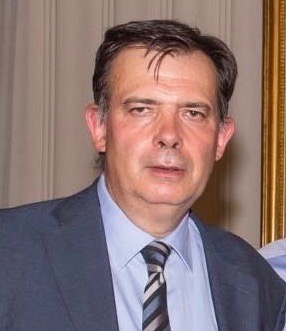
 045 8028731
045 8028731

